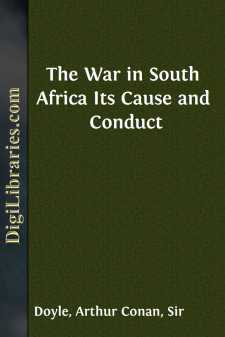History
- Africa 30
- Americas (North Central South West Indies) 50
- Ancient 68
- Asia 58
- Australia & New Zealand 8
- Canada 41
- Caribbean & West Indies 1
- Civilization 20
- Eastern Europe 12
- Europe 310
- Expeditions & Discoveries 60
- General 77
- Historical Geography 1
- Jewish 9
- Latin America 3
- Medieval 8
- Middle East 13
- Military 248
- Revolutionary 8
- Study & Teaching 5
- United States 353
- Western Europe 56
- World 13
History Books
Sort by:
CHAPTER I. THE HERITAGE FROM SPAIN AND PORTUGAL At the time of the American Revolution most of the New World still belonged to Spain and Portugal, whose captains and conquerors had been the first to come to its shores. Spain had the lion's share, but Portugal held Brazil, in itself a vast land of unsuspected resources. No empire mankind had ever yet known rivaled in size the illimitable domains of...
more...
ORIGIN OF THE PURPOSE OF THE TRIP N the Autumn and Winter of 1915, a body of distinguished and representative Frenchmen visited the United States, their object being to make an investigation of conditions here, having in mind the great need of France in war munitions, the steel in ingot and bar form very much needed for the manufacture of war materials, and the numerous other commodities necessary for...
more...
It is impossible to appreciate the South African problem and the causes which have led up to the present war between the British Empire and the Boer republics without some knowledge, however superficial, of the past history of South Africa. To tell the tale one must go back to the beginning, for there has been complete continuity of history in South Africa, and every stage has depended upon that which...
more...
by:
George Edmundson
CHAPTER I [pg.1] THE BURGUNDIAN NETHERLANDS The last duke of the ancient Capetian house of Burgundy dying in 1361 without heirs male, the duchy fell into the possession of the French crown, and was by King John II bestowed upon his youngest son, Philip the Hardy, Duke of Touraine, as a reward, it is said, for the valour he displayed in the battle of Poictiers. The county of Burgundy, generally known as...
more...
THE CÆSARS. The condition of the Roman Emperors has never yet been fully appreciated; nor has it been sufficiently perceived in what respects it was absolutely unique. There was but one Rome: no other city, as we are satisfied by the collation of many facts, either of ancient or modern times, has ever rivalled this astonishing metropolis in the grandeur of magnitude; and not many—if we except the...
more...
A DESTROYER IN ACTIVE SERVICE BY AN AMERICAN OFFICERApril7.War accepted with equanimity.Life on a destroyer is simple.Well, I must confess that, even after war has been declared, the skies haven't fallen and oysters taste just the same. I never would have dreamed that so big a step would be accepted with so much equanimity. It is due to two causes, I think. First, because we have trembled on the...
more...
by:
F. L. Morrison
FROM MOBILISATION TO THE EAST. The period from the date of mobilisation to the date on which we began our active service experiences we propose to pass over quickly, as the events which happened then seem now of small interest to those coming later. With orders prepared carefully in peace time, mobilisation went smoothly. The Normal School, Glasgow, became a barracks and a place for the busy public of...
more...
[I saw that money is the cause of suffering and vice among the people, and that, if I desired to help people, the first thing that was required of me was not to create those unfortunates whom I wished to assist. I came to the conclusion that the man who does not love vice and the suffering of the people should not make use of money, thus presenting an inducement to extortion from the poor, by forcing...
more...
by:
Various
Slavery's Passed Away. As sung in Edward Harrigan's Drama, Words by EDWARD HARRIGAN. Music by DAVE BRAHAM. Copyright, 1887, by Wm. A. Pond & Co. Listen | View/Download Lilypond 1. Oh child come to me and just sit down by my knee,I'll tell that same old story just once more;Of dark, clouded years, oh, so full of bitter tears,In those bondage days of long before the war.In...
more...
by:
Edward Carpenter
I INTRODUCTORY The following Studies and Notes, made during the earlier period of the present war and now collected together for publication, do notвÐâas will be evident to the readerвÐâpretend to any sort of completeness in their embrace of the subject, or finality in its presentation. Rather they are scattered thoughts suggested by the large and tangled drama which we are...
more...











